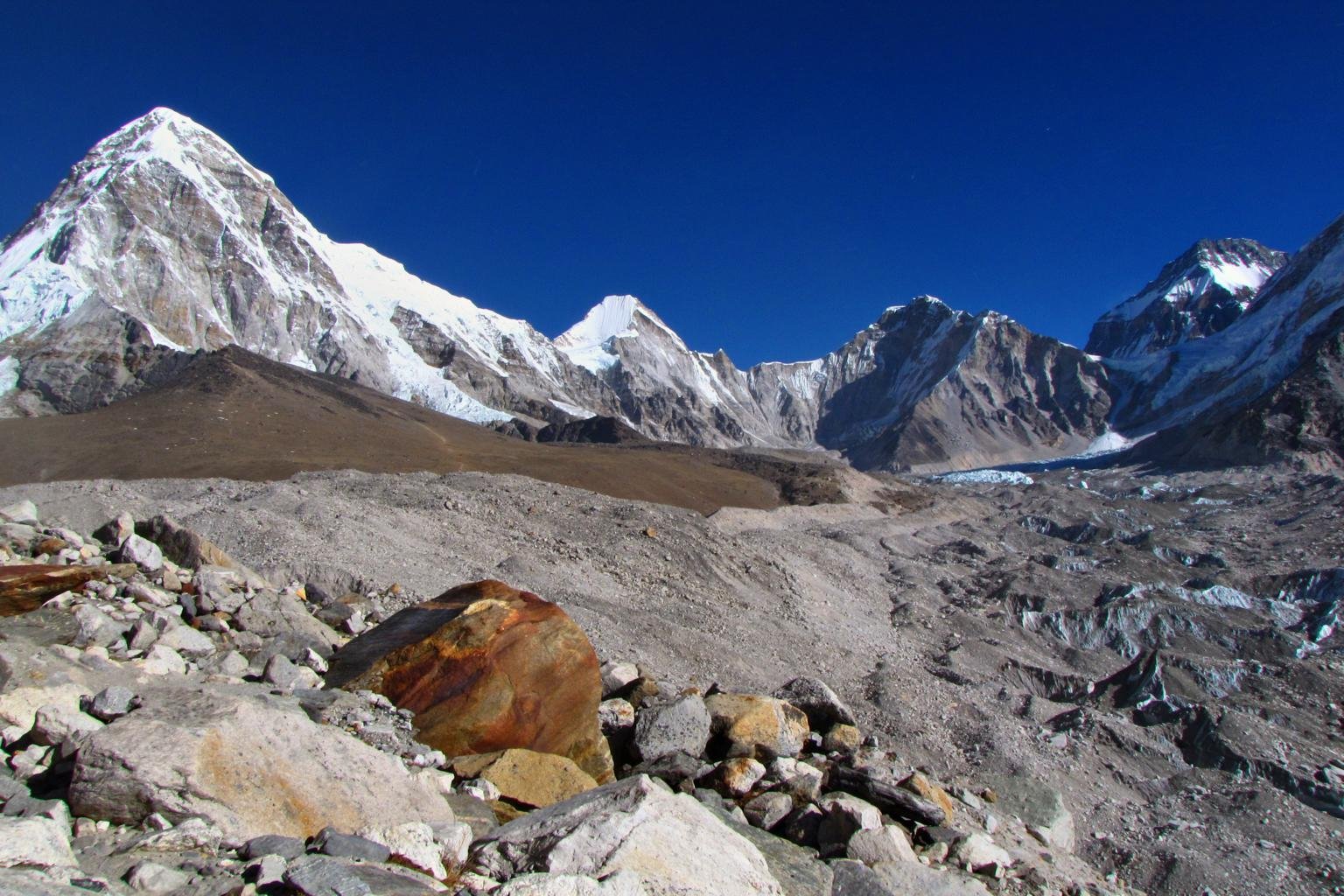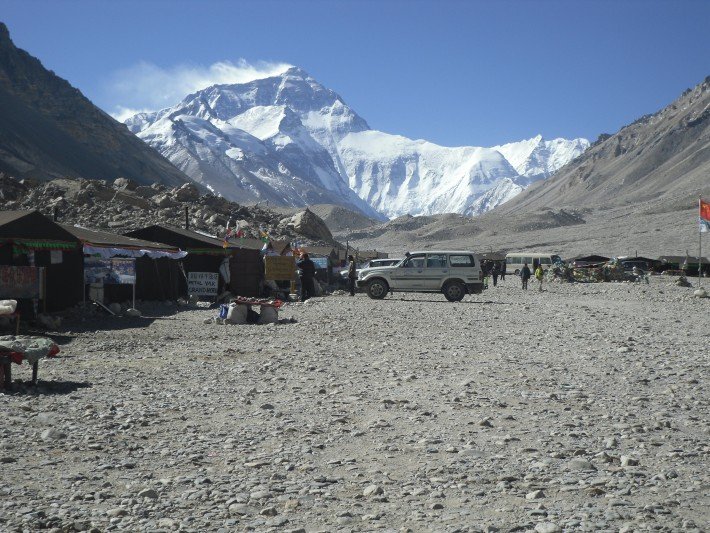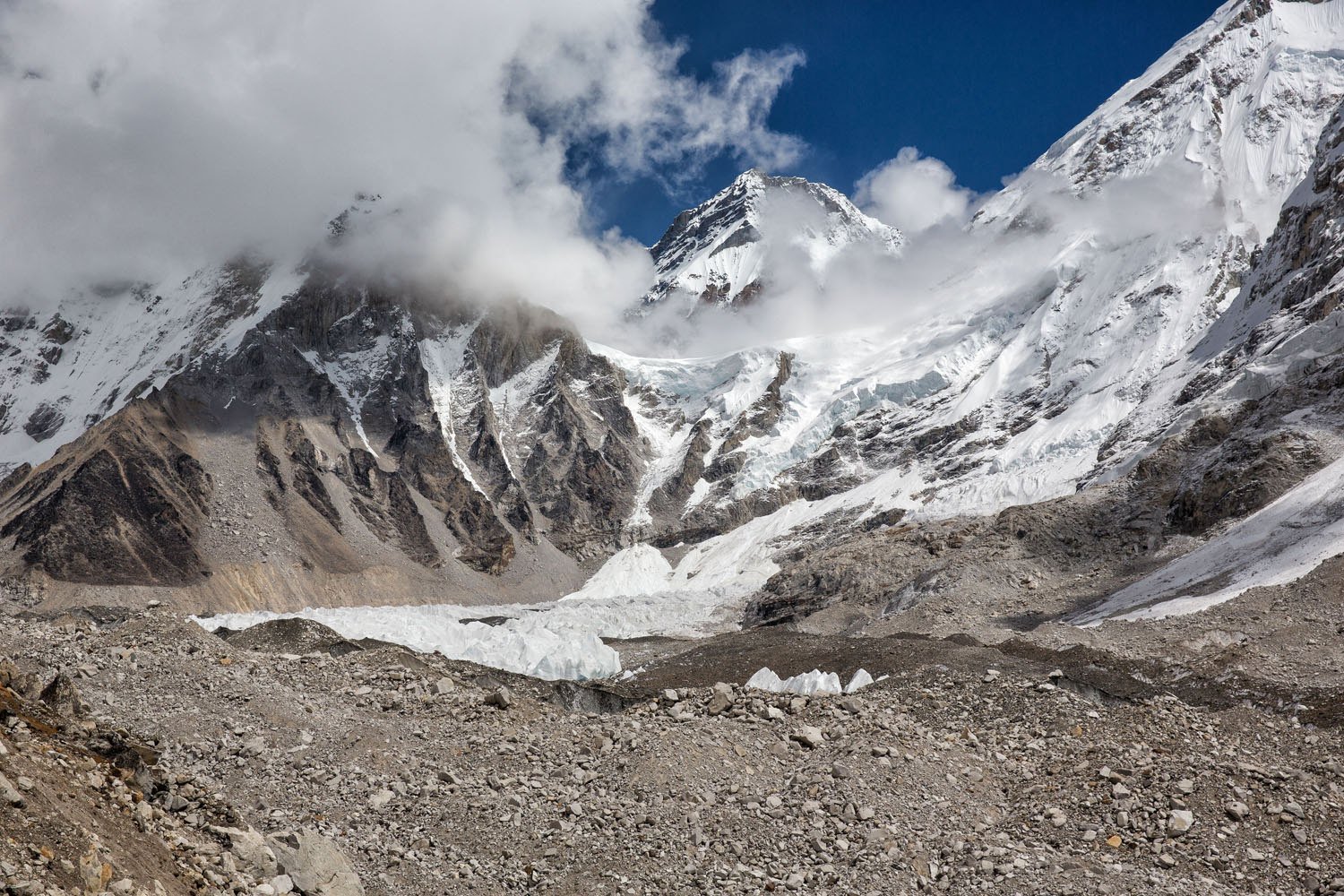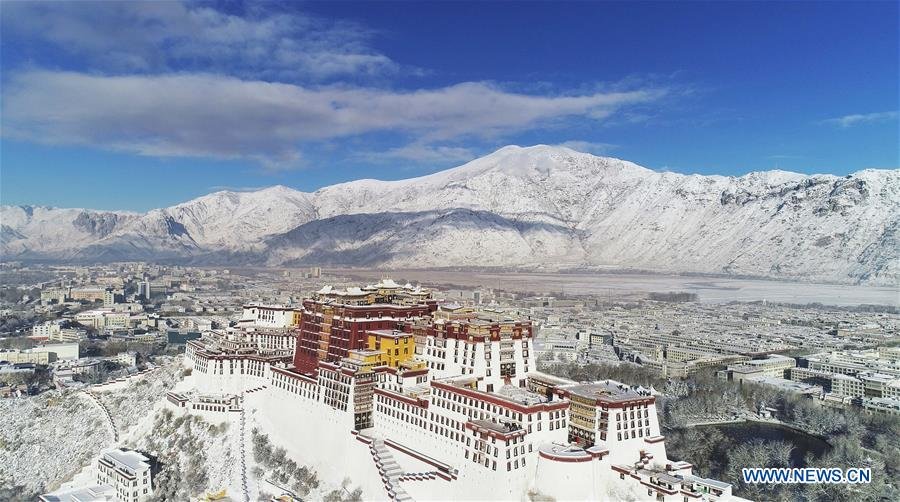Everest Advance Base Camp Trek: A Journey to the Roof of the World

Nestled amidst the towering Himalayas, Everest Advance Base Camp (EABC) offers a unique opportunity to experience the majesty of Mount Everest up close. The trek to EABC is a challenging but rewarding adventure that leads trekkers through breathtaking landscapes and provides unforgettable views of the world’s highest peak.

The Journey Begins:

The trek typically starts from Lukla, a small town in eastern Nepal known as the “Gateway to Everest.” From Lukla, trekkers embark on a scenic flight to Phaplu, before commencing the trek along the Dudh Koshi River. The trail winds through lush forests, quaint villages, and past cascading waterfalls, gradually ascending towards higher altitudes.
Acclimatizing to High Altitudes:
As trekkers gain altitude, regular acclimatization stops become essential for ensuring safety and reducing the risk of altitude sickness. The trek is designed with scheduled rest days at designated altitudes, allowing the body to adjust to the thinning atmosphere. Proper hydration, rest, and listening to one’s body are crucial throughout the trek.
Reaching Everest Advance Base Camp:
The highlight of the trek is undoubtedly the arrival at Everest Advance Base Camp (5,364m). Perched on the Khumbu Glacier, EABC offers panoramic views of Mount Everest, the Nuptse and Lhotse peaks, and the surreal icefall that climbers negotiate on their ascent to the summit. Trekkers can spend time at EABC, absorbing the awe-inspiring scenery and the atmosphere of a climbers’ base camp.
Additional Explorations:
In addition to reaching EABC, trekkers can opt for optional side trips to explore the surrounding area. These include a hike to Kala Patthar (5,643m), a viewpoint offering a close-up perspective of Mount Everest and the surrounding peaks. Another popular option is the trek to Everest Base Camp (5,364m), the starting point for climbers attempting the summit.
The Return Journey:
After experiencing the wonders of EABC, trekkers begin their descent, retracing their steps through the beautiful landscapes they previously encountered. The return journey provides an opportunity to reflect on the memories created and appreciate the changes in the environment as they descend to lower altitudes.
Fitness and Preparation:
The Everest Advance Base Camp Trek is a physically demanding adventure. Trekkers should possess good fitness levels and have prior experience with high-altitude trekking. It is advisable to undergo medical check-ups and consult with healthcare professionals to ensure suitability for the trek.## Closer To The Clouds: Everest Advance Base Camp Trek
Executive Summary
The Everest Advance Base Camp Trek is a once-in-a-lifetime experience that takes you to the base of the world’s highest mountain. This challenging trek will push you to your limits, but the rewards are immeasurable. You’ll be rewarded with breathtaking views of the Himalayas, a chance to experience the Sherpa culture, and a sense of accomplishment that will stay with you for a lifetime.
Introduction
The Everest Advance Base Camp Trek is a 12-day trek that takes you from Lukla to Everest Base Camp and back. The trek follows the Dudhkoshi River through the Khumbu Valley, and you’ll pass through several Sherpa villages along the way. The trek is challenging, but it’s also an incredibly rewarding experience. You’ll see some of the most beautiful scenery in the world, and you’ll have a chance to learn about the Sherpa culture.
Top 5 Subtopics
- Physical Preparation
- Packing List
- Acclimatization
- Altitude Sickness
- Safety
Physical Preparation
The Everest Advance Base Camp Trek is physically demanding, so it’s important to start training in advance. You’ll need to be able to hike for several hours each day, often on rough terrain. You should also be able to carry a backpack weighing 15-20 pounds.
- Start hiking several months before your trip.
- Gradually increase the distance and elevation of your hikes.
- Hike with a backpack that is the same weight as the one you’ll be carrying on the trek.
- Strengthen your legs and core by doing exercises such as squats, lunges, and planks.
Packing List
What you pack for your trek will depend on the time of year you’re going and the length of your trek. However, there are some essential items that you should always bring:
- Hiking boots
- Backpack
- Trekking poles
- Clothing for all types of weather
- Water bottle or hydration pack
- Sunscreen
- Sunglasses
- Hat
- Gloves
- First-aid kit
- Toiletries
Acclimatization
Acclimatization is the process of gradually adjusting to higher altitudes. It’s important to acclimatize properly in order to avoid altitude sickness.
- Spend several nights at a lower altitude before starting your trek.
- Gradually increase the altitude you sleep at each night.
- Listen to your body and rest if you start to feel any symptoms of altitude sickness.
Altitude Sickness
Altitude sickness is a common problem for trekkers who ascend to high altitudes too quickly. Symptoms of altitude sickness can include:
- Headache
- Nausea
- Vomiting
- Diarrhea
- Shortness of breath
- Fatigue
- Confusion
- Dizziness
If you start to experience any symptoms of altitude sickness, it’s important to descend to a lower altitude immediately.
Safety
The Everest Advance Base Camp Trek is a safe trek, but there are some risks involved. These risks include:
- Altitude sickness
- Weather conditions
- Crevasses
- Avalanches
It’s important to be aware of these risks and to take precautions to stay safe.
- Hire a guide who is experienced in trekking in the Himalayas.
- Listen to your guide’s instructions and stay on the marked trails.
- Be aware of the weather forecast and be prepared for changes in conditions.
- Don’t trek alone.
- Bring a first-aid kit and know how to use it.
Conclusion
The Everest Advance Base Camp Trek is an unforgettable experience that will stay with you for a lifetime. If you’re up for the challenge, I highly recommend it. Just be sure to do your research and prepare properly before you go.
